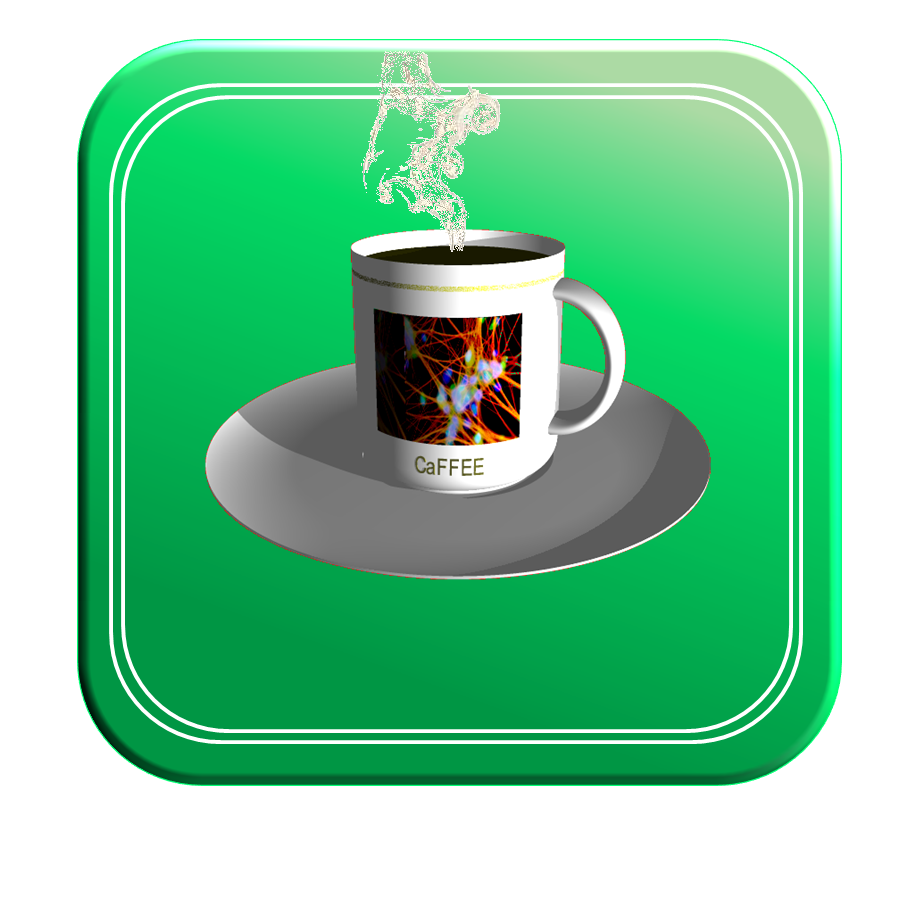
|
|
CaFFEE, Ca Fluorescent Flash Evaluation Engine Original publication: Karreman, C., Klima, S., Holzer, A.-K. and Leist, M. (2020) “CaFFEE: A program for evaluating time courses of Ca2+ dependent signal changes of complex cells loaded with fluorescent indicator dyes”, ALTEX - Alternatives to animal experimentation, 37(2), pp. 332-336. Abstract Quantification of changes in intracellular free Ca2+ concentrations [Ca2+]i is fundamental to the understanding of the physiology of single cells in response to both environmental and endogenous stimuli. Here we present easy to use freeware that allows especially the evaluation of [Ca2+]i signals in complex and mixed cultures. The program CaFFEE (Calcium Fluorescent Flash Evaluating Engine) enables the user to evaluate the response of hundreds of cells to treatments that influence [Ca2+]i. CaFFEE processes large quantities of image data, automatically identifies individual cells in mixed, heterogeneous populations, and evaluates their fluorescence signal. All data are exported in spreadsheet format, and data on thousands of cells can be batch-processed. Moreover, the program optimizes the visual representation of time-lapse image data for user-guided data exploration (setting of parameters for semi-automated data processing). The freeware allows the standardized and transparent processing of imaging data independent of the platform used to generate the data. Will analyse all movies in a sub-directory if so required. BEWARE! This program was custom made just for solving the problems of measuring an enormous amount of cell related data in our laboratory. It was programmed for using the formats we use, on our computer setup and with our aims in mind. So it is not as flexible as it could have been. What we use: For all our experiments in which we evaluate the Ca2+-influx we use 96-well plates from Sarstedt or Falcon. To analyze the results we use two fluorescent channels. The blue channel is used to visualize the nuclei stained with H-33342. The Ca2+-influx is detected in the green channel by the use of Fluo-4AM. The present version of CaFFEE expects these two channels to be used, it is not possible to swap channels in the program. For the evaluation of the plates we use the automated microscope system of Cellomics (Thermo Fischer), the ArrayScan VTI. Pictures are taken with a rate of approx. 1 per second. After ten seconds the ligand is pipetted in automatically and another 40 pictures are taken. Per assayed well a movie is exported in .avi format. Beware to set the export parameters to “Manual” and the brightness to “from 0% to 100%”. The so created movies have a frame size of 512 x 512 pixels. Other sizes can be used, but be aware that larger images will be shown only partially in CaFFEE. Magnification can be 10x or 20x, both can be assayed without trouble using CaFFEE. All pictures of a series of experiments can be saved in one folder. CaFFEE is able to evaluate them all in one go. The output can be directed directly to Microsoft Excel - this program has to be installed on the computer in order to use this feature. Browse the handbook Download the program and handbook Go to the Overview of our programs. |